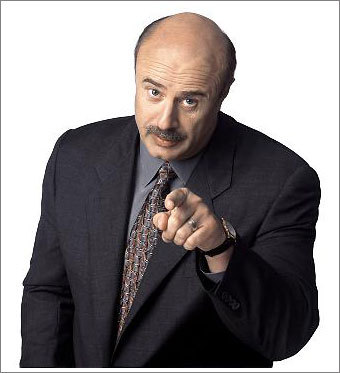The problem with Dr. Phil’s division of chance and external locus of control (explained here yesterday) is that there are too many examples that fall in the gray area. Is your metabolism just a card you were dealt (chance)? Is it a power outside your control (external)? What about waiting to be the next contestant on the Biggest Loser– are you depending on getting lucky to make it on the show (chance) or your personality in your audition tape (internal)? Do you think only Jillian can whip you into shape (external)? Even if you do think an opportunity like the Biggest Loser is th e only thing that can make a difference for you, you can still be working from an internal locus of control if you are doing everything within your power to get yourself there.
e only thing that can make a difference for you, you can still be working from an internal locus of control if you are doing everything within your power to get yourself there.
There are plenty of online quizzes that would like to help you identify your locus of control and Dr. Phil has his own. In general, an internal locus of control, believing that you have power in your own life, is seen as the healthiest psychologically. An internal locus of control can be a problem, however, if you are giving yourself credit for your failures, but not your successes, or if you believe that you are the only one that can make changes in your life, but you do have confidence in your ability to do so. On the other hand, those with an external locus of control can lead a happy, relaxed life if content with their circumstances; however they are less likely to take risks and work on self-improvement even if less than content.
Research suggests that locus of control is learned and generally a response to circumstances, which means that you can change your locus of control if it’s not working for you. Remember, Dr. Phil’s first key is “Right Thinking”. Who or what is or has been responsible for your weight gain and or or what is or will be responsible for your weight loss? What is the “only way” that you can lose weight?
